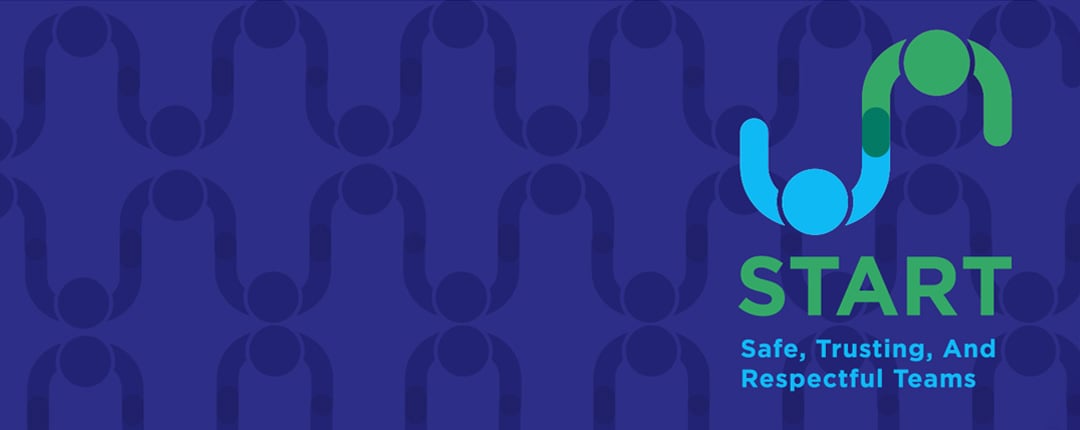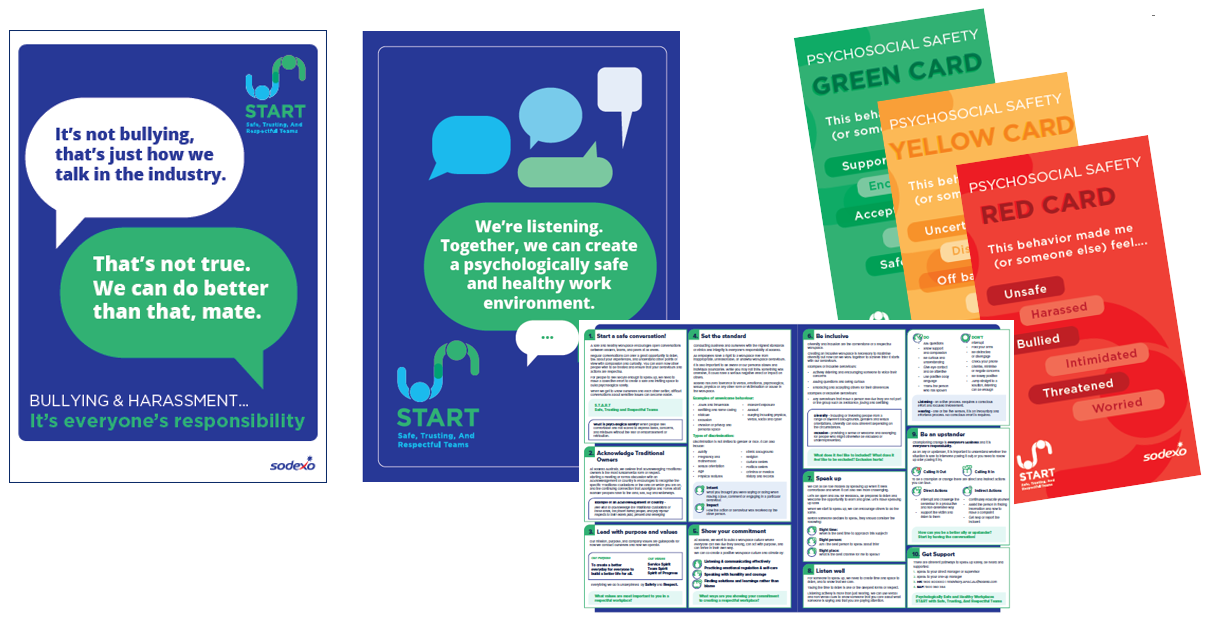
The recipe for a psychologically safe and healthy workplace culture
The FIFO (Fly-In, Fly-Out) industry is evolving, driven by responses to the June 2022 Enough is Enough Report, post-COVID focus on mental well-being, and changes to Work Health and Safety (WHS) legislation to address psychosocial risks and psychological safety in the workplace.
At Sodexo we not only welcome these changes, but we are also innovating and leading in creating safe, inclusive, and respectful places for people to work across all our operations in Australia, from our most remote communities to our metro locations.
Part of this is about raising awareness around what psychosocial risks are and understanding the difference between psychological safety versus psychosocial risk.
Psychosocial risks are factors that increase the psychological stress or difficulty of a task. Unmanaged psychosocial risks can lead to psychological harm and contribute to human error related physical incidents of all types.
Psychological safety is a positive attribute that describes a supportive work environment. It is an environment where employees feel valued, included, respected and can speak up.
Both are essential aspects of workplace health and safety that require everyone’s attention.
Workplace safety is as much about mindset and psychological safety as it is about having strong physical safety systems in place. It’s about taking mental health as seriously as physical injuries.
We recognise that the FIFO village environment is unlike any other workplace and presents unique risks; from separation from families to living, working, and socialising with work colleagues.
Our approach to eliminate and manage hazards encapsulates a shared responsibility to address sexual harassment under the umbrella of psychosocial health risks.
Alongside the broader Energy & Resources sector, we are driven by our collective commitment to eliminate the risk of sexual assault, sexual harassment, or any other behaviours that threaten people’s personal and psychological safety at work.
This is in line with Sodexo’s Zero Harm Mindset; a culture of care, where we all look out for each other and our clients’ safety and take proactive action if we see someone or something at risk.
That’s why Sodexo has developed START—Safe, Trusting, and Respectful Teams—aimed at ensuring a healthy living and working environment for everyone. START comprises both educational and promotional components, effectively raising awareness and educating employees on respectful conduct, cultural sensitivity, and problem-solving strategies for challenging situations.
Here are some the key ingredients for creating a psychologically safe and healthy workplace culture.
Get the mindset right
Our Zero Harm Mindset is driven by clearly defined, simple, achievable, and visible safety behaviours—these include open communication, empowered employees, training, and compliance.
We maintain transparent and open lines of communication, empowering employees to speak up, recognise their authority to stop work, share learnings and openly express concerns or ideas that drive continuous safety improvement.
Regular conversations can offer a great opportunity to listen, talk about experiences, and understand other points of view with compassion and curiosity. Learning how other people wish to be treated will help ensure that our behaviours and actions are respectful.
For people to feel secure enough to speak up, we need to make a deliberate effort to create a safe and inviting space to build psychological safety.
When we get to know ourselves and each other better, difficult conversations about sensitive issues can become easier.
Set the standard and hold people accountable for their actions
Making it clear that everyone is expected to conduct business and behave with the highest standards of ethics and integrity.
Everyone deserves to be treated with respect and dignity and has the capacity to be respectful in return. In the workplace, this is the right to an environment free from inappropriate, unreasonable, or unlawful workplace behaviours.
It is also important to be aware of our personal biases and individual boundaries. While you may not think something was offensive, it could have a serious negative effect or impact on others.
Just as Sodexo has zero tolerance to verbal, emotional, psychological, sexual, physical or any other form of victimisation or abuse in the workplace, we are also seeing those changes across the wider FIFO industry.
In previous years incidents of verbal abuse, rudeness, or inappropriate jokes may have been waved off or minimised; today that behaviour is increasingly being challenged or escalated.
Enable the ability to raise concerns
We know that allowing people to voice their concerns without fear of retribution is one of the keys to creating a psychologically safe workplace. This extends to the assurance that no one will be punished or humiliated for speaking up with ideas, questions, concerns, or mistakes.
When we start to speak up, we can encourage others to do the same.
By leading by example and speaking up when times are comfortable—and even more when they’re not—role models within a business are available no matter role title, responsibility, or reach.
To be an effective ally or upstander, it is important for people to understand whether the situation is safe to intervene (calling it out) or when to follow up later (calling it in).
To help with this, Sodexo has created a simple Red, Yellow, Green Card self-assessment tool that everyone can use to reflect on their actions and behaviours. Green – reward and recognise the behaviour. Yellow – challenge and call it out. Red – call it in and escalate.

Consider human factors and stop the blame game
Foster a blame-free culture and promote learning from mistakes by promoting fairness, learning, and non-punitive responses.
Human factors need to be considered, such as, workload, situational awareness, and other relevant factors to ensure incidents are properly examined, lessons are learned, and actions are taken to prevent future occurrences.
A lack of understanding of this can lead to human error being identified as the main contributor to a psychosocial incident. Investigations end up investigating the person and their performance, instead of the system and its performance that allowed the incident to occur.
This can result in a weak response including new procedures, additional training, disciplinary action, or an encouragement for increased personal vigilance—all approaches that focus almost exclusively at identifying and addressing a person’s individual failure.
Instead, we need to understand the human factors and appreciate that error is often a product of psychosocial risk factors that we can investigate and control as a business. By doing this we empower ourselves with the tools to prevent the same or similar incidents from reoccurring.
At Sodexo we call this Just Culture—a culture that does not focus on blaming people when things go wrong, but one that successfully focuses on and learns from wider systemic issues.
We’re all on this journey together
At Sodexo, we are building a workplace culture where everyone can feel like they belong, can act with purpose, and can thrive in their own way.
Our aspiration is to share our methods and insights collaboratively with our clients, and champion change across industry. We know everyone has a role to play in creating a positive, inclusive and psychologically safe workplace culture.
We have the recipe and all the ingredients with START. Together, we can create a Safe, Trusting and Respectful Team.